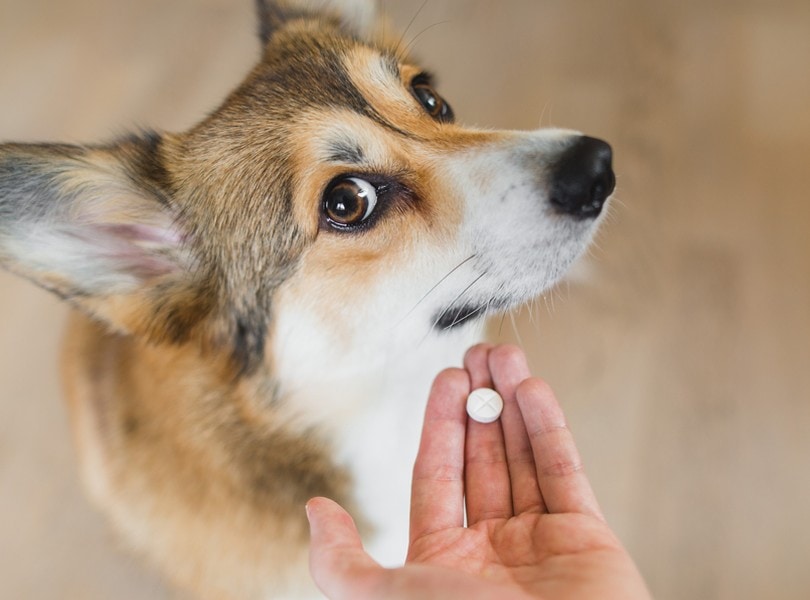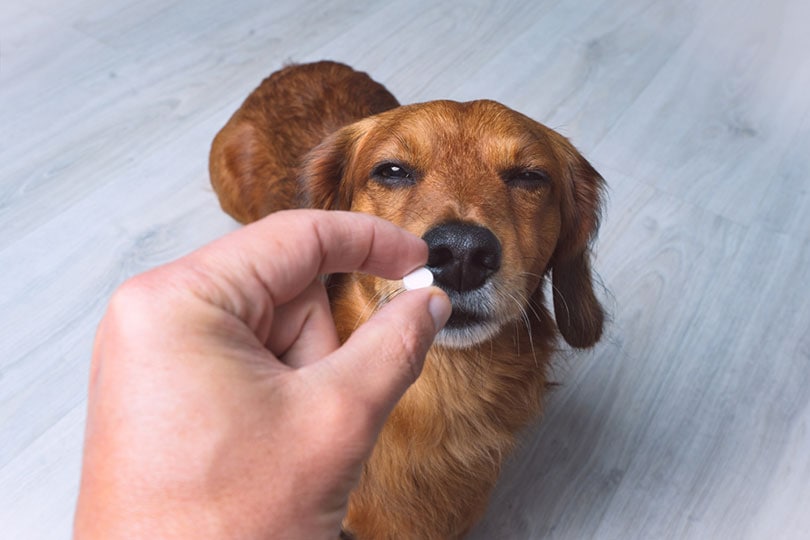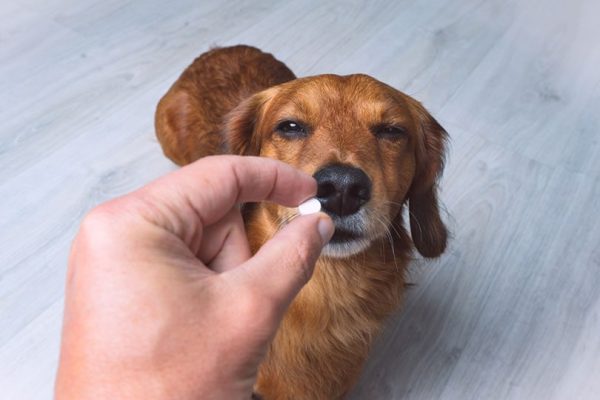Antibiotics are one of the most commonly prescribed drugs for pets, and it’s essential to understand their role in helping our dogs, why your veterinarian may have prescribed them, and what the common side effects are. There are many types of antibiotics and there are some that can indirectly cause tiredness as a side effect. We’ve put together all this information for you, and you’ll learn how antibiotics affect your favorite pet.

What Do Antibiotics Actually Do?
Antibiotics are used to treat bacterial infections. Vets prescribe them if they believe an infection is unlikely to clear up on its own. When it’s left untreated, a bacterial infection can become more severe and lead to complications.
Not only are antibiotics one the most common types of medications prescribed, but there are also many types available and different classes. The various classes of antibiotics work in different ways against bacteria.

Common Canine Antibiotics
You may find you recognize some of the names of antibiotics; dogs can be infected by many of the same bacteria we can, so it makes sense that you’ll see a crossover between their medication and ours.
- Amoxicillin
- Amoxicillin/Clavulanate
- Cephalexin
- Enrofloxacin
- Gentamicin
- Metronidazole
- Sulfamethoxazole-Trimethoprim
- Tetracycline
However, don’t be tempted to self-diagnose or treat your animal yourself. Using antibiotics when they aren’t required leads to antibiotic resistance, which is dangerous for humans and pets. Several organizations, such as the World Organization for Animal Health (OIE), have outlined how important it is to use antibiotics wisely to sustain their viability as treatments.
Do Antibiotics Make Dogs Tired?
Antibiotics usually aren’t the direct cause of a dog’s tiredness. However, they can indirectly cause tiredness due to some of the side effects that taking antibiotics can have, including nausea, vomiting, and diarrhea, which can all lead to feeling tired due to the effects on the body. It’s important to be aware of the potential side effects of a certain antibiotic and monitor your dog while they are taking antibiotics.
Can a Dog Overdose on Antibiotics?
Another important consideration is, can a dog overdose on antibiotics?
- Diarrhea
- Discolored teeth
- Drooling
- Inappropriate drinking or urinating
- Loss of appetite
- Skin lesions
- Tremors
- Vomiting
There are hundreds of antibiotics, and they each have a unique function and specific dosing range. If you believe your dog has ingested too much of an antibiotic or has ingested one prescribed to a human, contact your vet immediately.

Possible Side Effects
Some antibiotics cause nausea, vomiting, diarrhea, and a loss of appetite, and you notice these effects within a day or two of starting the antibiotic. Feeding your dog when administering antibiotics can minimize these side effects. However, it is possible for your vet to switch your dog to a different antibiotic or give them something else alongside the antibiotic to relieve the gastrointestinal upset.
Do Antibiotics Make Dogs Urinate More?
Peeing more often may not be due to the antibiotic itself but could be a downstream effect of increased thirst to compensate for, say, the diarrhea that has led to dehydration from the fluid loss. Many medications also recommend giving your dog plenty of water to stop the tablets from getting stuck in the esophagus, and increased water intake results in more urination.

Allergic Reactions
Dogs can suffer from allergic reactions to antibiotics, but it is relatively uncommon. Just like humans, dogs can develop an allergic reaction at any time, so be aware that a past tolerance does not mean there won’t be an allergic reaction in the future.
The signs of an allergic reaction range from mild to severe, but the possible signs include a rash, hives, or swelling. Your dog could also experience difficulty breathing, seizures, excessive salivation, vomiting, and diarrhea. If you notice these signs, get your dog to the vet immediately.
Neurological Effects
Another relatively uncommon, though possible, side effect are neurological effects. These include head tilting to one side and balance problems. It’s crucial when your dog is on medication to monitor them closely so you can take the appropriate action if something goes wrong.
Conclusion
Antibiotics are not directly responsible for your dog’s tiredness, but they arguably play an indirect role as they help your pet recover. It’s essential to follow the vet’s treatment instructions carefully to avoid an adverse reaction and look for any unusual signs while your dog is on an antibiotic. Also, be sure to provide healthy meals, fresh water, and plenty of love to your pup.
Featured Image Credit by: Creative Cat Studio, Shutterstock











